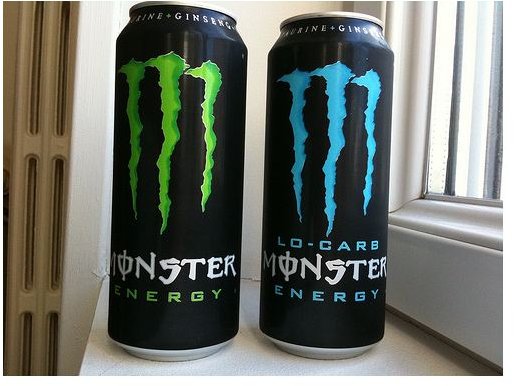How are Monster Energy Drinks Bad for You? Possible Health Concerns
Liquid Energy?
_
Monster energy drinks are one of the most popular energy drink brands. From Monster Khaos to Heavy Metal, each product supplies a powerful mix of carbonated water, sugars, nutrients, herbal extracts, and an energy blend. Anyone who has tried one would attest to the energizing effect, but what is the cost of such instant gratification? Are Monster energy drinks bad for you? Are there side effects?
Marketed as an energy supplement, directed towards athletes and the young, Monster energy drinks appear to be liquid energy. There are health concerns, from high amounts of caffeine, sugar, and more than anything, the perception of a positive and intense experience, instead of a potentially dangerous drink.
Caffeine
How much caffeine is in a Monster energy drink? One sixteen ounce can has 160 milligrams. An eight ounce cup of coffee contains from 100 to 150 milligrams. Caffeine consumption is generally considered safe in amounts up to about 300 milligrams per day, although people do react differently to this compound. Experiencing symptoms such as nausea, headaches, rapid heart beat, nervousness, and irritability, may be a sign to cut back on caffeine intake, whether from coffee, tea, or energy drinks.
Drinking an entire sixteen ounce can of Monster energy drink before working out, or on an empty stomach, can certainly have a negative impact on health, merely because of the caffeine. Young athletes have complained of feeling ill or dizzy. In excess, caffeine raises blood pressure, causes dehydration, and can lead to chronic headaches.
Energy Blend
The energy blend used in Monster energy drinks is primarily responsible for the energizing effect. Understanding what each compound is, can help consumers decide if the products are healthy or not.
- L-Carnitine is a nutrient which the body produces on its own, although in cases of cardiovascular problems, it is not always produced efficiently. It helps the body metabolize fat, turning it into energy.
- Inositol is also a nutrient, which can be useful for balancing body chemicals, beneficial for conditions such as panic disorder and high blood pressure.
- Glucuronolactone occurs naturally in the body as well. It is believed to improve mental performance and promote feelings of well-being.
- Maltodextrin is a sugary food additive.
- Guarana is a natural herb which contains high amounts of caffeine.
- Caffeine is a natural compound which can be safe in moderation, promoting mental alertness.
Other common ingredients in Monster energy drinks include amino acids, such as taurine, B-complex vitamins, which are useful for energy production and helping the body deal with stress, and ginseng extract, which promotes mental and physical stamina.
Conflicting Views
People who enjoy Monster energy drinks, and the manufacturer itself, rave about the benefits of these beverages. Health researchers, and others involved in the health community have expressed concern over the potentially dangerous combinations in all energy drinks.
Are Monster energy drinks bad for you? There is research to support the negative side effects of high amounts of caffeine and refined sugars, which would imply danger in excess. As to long-term use of the energy blend and other ingredients, there is no research to officially make the claim that these beverages are bad for you. Still, understanding what is in these products is important. Knowing how much caffeine is in a Monster energy drink, and what that means, is vital to making an informed decision. Knowing how to drink responsibly, and in moderation could possibly prevent serious problems. Know what you put in your body, and decide for yourself if it is right for you.
Resources
Mason, Michael. “The Energy Drink Buzz is Unmistakable. The Health Impact is Unknown.” (The New York Times, December 12, 2006).
Doheny, Kathleen. “Energy Drinks: Hazardous to Your Health?” (WebMD) https://www.webmd.com/food-recipes/news/20080924/energy-drinks-hazardous-to-your-health
“Carnitine.” (University of Maryland Medical Center) https://www.umm.edu/altmed/articles/carnitine-l-000291.htm.
Photo Credit
photo by: Homard.net (CC/flickr) https://www.flickr.com/photos/homard/4224725807/
